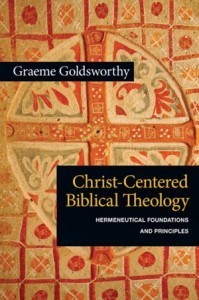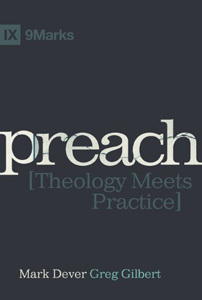Justin Taylor's Blog, page 217
April 26, 2012
Lecrae’s ‘Man Up’ Mission to Address Father Absence
Andrew Thompson of CT’s “This Is Our City” project has a nice profile of Lecrae and the “Man Up” campaign by ReachLife Ministries and Reach Records. It provides some helpful background for why they believe the crisis of absent fatherhood is best addressed by biblical masculinity.
You can go get an MP3 for the “Man Up Anthem,” and watch the video below:
Here’s a trailer for the short film they are working on in connection with the album:
More explanation of the whole vision and campaign below.
THE PROBLEM
There’s an ongoing war within urban culture. Confusion over what manhood is has plagued our cities, families and lives. The concept of a biblical man has been lost in our generation. Unfortunately, many churches struggle to provide its urban members, much less those beyond their walls, with a tangible definition of a real man.
THE CAMPAIGN
In partnership with ReachLife Ministries and Reach Records, Man Up is a new campaign, calling men in the hip-hop culture to true biblical manhood through repentance and faith in Christ.
The campaign consists of a short film, small group curriculum, music soundtrack and concert series. It is our call for men in urban culture to repent for their failure to become the men that God has created them to be and for believers to live as who they truly are in Christ.
THE SHORT FILM & CURRICULUM
The short film takes a look at six different areas of manhood that young men fail to live up to. By taking a look at the common challenges and responses of young men in urban culture, we hope to reveal the need for clarity on what being a man truly means.
A curriculum is also available through ReachLife Ministries to accompany the short film and promote further discussion in small group settings.
THE SOUNDTRACK & CONCERT SERIES
The soundtrack of Man UP is from Reach Records and delves into the concepts addressed in the film and curriculum. Later this year, audiences can experience a showing of the film, a panel discussion on manhood, and a live concert as the Man Up concert series makes stops in select cities.
It is our hope that men everywhere will answer the call to Man Up!
Goldsworthy’s “Christ-Centered Biblical Theology”
 Endorsements for Graeme Goldsworthy’s new Christ-Centered Biblical Theology: Hermeneutical Foundations and Principles (not to be confused with his previous book, Gospel-Centered Hermeneutics: Foundations and Principles of Evangelical Biblical Interpretation).
Endorsements for Graeme Goldsworthy’s new Christ-Centered Biblical Theology: Hermeneutical Foundations and Principles (not to be confused with his previous book, Gospel-Centered Hermeneutics: Foundations and Principles of Evangelical Biblical Interpretation).
“Over the years readers have benefited from Goldsworthy’s work in biblical theology. Now we have the mature and wise reflections of a veteran scholar on how to do biblical theology. I found this book to be edifying and stimulating. Even those who disagree with some dimensions of Goldsworthy’s approach will find him to be a challenging conversation partner.”
—Thomas R. Schreiner, James Buchanan Harrison Professor of New Testament Interpretation, The Southern Baptist Theological Seminary
“Graeme Goldsworthy’s contribution to the study of biblical theology has been enormous. In this informative study, he helpfully compares different evangelical approaches, explaining his own preference for the method advocated by Donald Robinson. Supporting a ‘three-stage structure of revelation’ (biblical history from creation to Solomon, prophetic eschatology, fulfillment in Christ), Goldsworthy gives an interesting insight into those influences which have inspired and shaped his passion for defending and expounding the theological unity of the Bible. For anyone fascinated by biblical theology, and especially Goldsworthy’s contribution to this field of study, the present volume is essential reading.”
—T. Desmond Alexander, Union Theological College, Belfast
“For many years I have admired the good things coming out of Moore Theological College. It’s high time that the biblical theology being done down under be put front and center in North America. In an age of increasing specialization and fragmentation where even biblical things come apart, Goldsworthy’s approach to the unity of Scripture is an important countercultural blast.”
—Kevin J. Vanhoozer, Wheaton College Graduate School
You can read the table of contents here.
April 25, 2012
Reviewing Enns on Adam and Advancing the Conversation
Good book reviews not only summarize a book but they engage the issues themselves, educating and challenging readers to think more deeply, thereby advancing the discussion. In other words, a good book review should not only teach you what the book under review says, but should teach you something about the topic under consideration.
Two new reviews of Peter Enns’s The Evolution of Adam: What the Bible Does and Doesn’t Say about Human Origins (Brazos, 2012) are good examples of what I have in mind. Enns, who teaches biblical studies at Eastern University, is not only an academician, but also the author of a new Bible curriculum for homeschoolers. In The Evolution of Adam he asserts that “If evolution is correct, one can no longer accept, in any true sense of the word ‘historical,’ the instantaneous and special creation of humanity described in Genesis, specifically 1:26-31 and 2:7, 22″ (xiv).
Jack Collins, author of Did Adam and Eve Really Exist?: Who They Were and Why You Should Care (Crossway, 2011), has written a thorough and informative review, interacting with the book’s arguments, assertions, and assumptions. Here is his conclusion:
In general, Enns presents what he takes to be the “consensus” view of “modern scholarship,” and underplays any critique of that consensus.
Nor does he recognize that this approach can be highly circular: who qualifies as a “scholar,” and does dissent from the consensus disqualify one?
Further, he tends to rely on a kind of either-or tactic: either it’s the critical consensus or it’s a simplistic brand of fundamentalistic literalism that is more simplified than that of any fundamentalist I know. There is no effort to warrant this stark antithesis and no awareness of the problem. The book is rife with oversimplifications like this.
What’s more, as I have remarked, he gives no analysis of any ideological underpinnings for the consensus, or of whether that makes any difference. Simply on the basis of sound critical thinking the book’s case must be judged a failure.
I found a value in reading this book, because its argumentative style strengthened and clarified my own hermeneutical thinking in the process of disagreement.
Nevertheless I do not recommend that anyone follow Enns into his conclusions. Indeed, I came away even more confident in traditional views of Adam and Eve as our specially created first parents through whom sin and evil came into human experience. If evolutionary theories are opposed to that, then those theories must adapt to accommodate the entire range of evidence.
For a very different sort of review—a meta-review, if you will, looking at some of the underlying hermeneutical and theological assumptions—see this piece by James K. A. Smith, professor of philosophy at Calvin College.
He writes:
If one wants to disagree with Enns’ conclusions, it is crucial to first attend to the whole framework within which he pursues his project. In fact, even if one were inclined to agree with his conclusions, it is important to consider whether one also wants to accept the way he gets there.
Focusing on Enns’s methodology, Smith asks: (1) which author? (2) whose Genesis? and (3) what’s history?
His argument is that Enns (1) tethers his interpretation so exclusively to the human author’s intention that he has no functional role for divine authorship in determining meaning; (2) operates with an a-canonical approach that fails to recognize that each book of the Bible is recontextualized within the canon; and (3) tends to implicitly dichotomize the “historical” and the “theological,” such that he verges on making the “theological” seem a-historical.
In the closing section, Smith explains why this matters so much:
Enns thinks he can save the Gospel by simply affirming universal human sinfulness without taking a stand on the origin of sin; but that is to fail to recognize that what’s at stake is the goodness of God. If God uses evolutionary processes to create the world and sin is inherent in those processes, then creation is synonymous with fall and God is made the author of sin—which compromises the very goodness of God. And if the goodness of God isn’t central to the Gospel, I don’t know what is.
It’s a long review, but worth the read, if for nothing more than to challenge some of the common-place assumptions that are largely unchallenged today in biblical studies.
For those uncomfortable with the idea that there can be a divine meaning that goes beyond the human author’s intention, see Vern Poythress’s article, “Divine Meaning of Scripture,” Westminster Theological Journal 48 (1986): 241-279.
5 Free Registrations for the Last “Next” Conference
If you are interested in going to the “Next” conference in Orlando next month, Sovereign Grace Ministries has offered to give away five free registrations.
Just leave a comment below about why you are interested in going. If you have already registered, and if you are randomly selected, they’ll refund your registration free. I’ll close the comments Monday at noon, central time.
Here are the speakers and their topics:
Kevin DeYoung, “The Church and Friendship: How Not to be a Stupid Friend” and “The Church and Holiness: Why Jesus Says We Need It and Why We Don’t Want To Talk About It”
Matt Chandler, “The Church and Culture: Reaching Out Without Selling Out”
C.J. Mahaney, “The Church and Disappointment: When Expectations Collide With Reality”
Jeff Purswell, “The Church and the Purpose of God: The Eternal Significance of Your Local Church”
Jared Mellinger, “The Church and Membership: Our Privilege and Protection”
Ian McConnell, “The Church and Sunday: A Little Taste of Heaven on Earth”
A Man’s Commentary on the Sermon on the Mount
Sobering and refreshing words from the preface to a new commentary on the Sermon on the Mount:
I covet each reader’s prayer for my own growth in godliness. For I recognize that if my life is not as apt a commentary on Jesus’ sermon as this book, I have failed to hear the true voice of the Teacher on the mountain and this book is an expression of the hypocrisy that Jesus so despised. May Christ grant to us a righteousness that surpasses that of the scribes and Pharisees and mirrors that of the Father’s own heart.
—Charles L. Quarles, Sermon on the Mount: Restoring Christ’ Message to the Modern Church, NAC Studies in Biblical Theology (Nashville: B&H, 2012), xv.
After You Read “The Hunger Games”
 I recently heard Gene Veith—provost and professor of literature at Patrick Henry College—offer an interesting suggestions for young people who read The Hunger Games: read Lord of the Flies next. He suggested that some of the themes of The Hunger Games—the first book of which he couldn’t put down—are handled with more depth and nuance in William Goldings classic. For parents and teachers, it could make for an interesting discussion to compare and contrast the books and their meaning.
I recently heard Gene Veith—provost and professor of literature at Patrick Henry College—offer an interesting suggestions for young people who read The Hunger Games: read Lord of the Flies next. He suggested that some of the themes of The Hunger Games—the first book of which he couldn’t put down—are handled with more depth and nuance in William Goldings classic. For parents and teachers, it could make for an interesting discussion to compare and contrast the books and their meaning.
The Law Is Abolished and the Law Continues: Why Matthew and Paul Don’t Disagree
Vern Poythress:
Some people might suppose from a superficial reading of Matthew that Matthew asserts almost pure continuity of the law, and enjoins us merely to keep the same old law in the same form as always, only now empowered with the presence of Christ. In fact, however, the coming of Christ is the coming of the kingdom of God, the climactic fulfillment of all to which the Old Testament pointed. Reality supersedes shadows. Hence radical transformation of the law is included.
Conversely, some people might suppose from a superficial reading of Paul that Paul primarily asserts only discontinuity in the law. The law is dead and gone, not to be obeyed, virtually irrelevant for Christian living (cf. Eph. 2:15; Rom. 7:1-6; Gal. 2:19). But Paul too sees the law as comprehensively fulfilled in Christ (Rom. 15:4-6; 1 Cor. 10:1-13; cf. Rom. 8:4; 13:10-14). When understood properly it is a most impressive means of communion with Christ (2 Cor. 3:15-18).
The apparent differences between Matthew and Paul arise largely from the differences between their immediate concerns and goals.
Paul asserts the abolition of the law loud and clear, lest anyone miss it and destroy the unity of Jews and Gentiles as free people in Christ.
Matthew asserts the continuation of the law loud and clear, lest anyone miss it and think that Jesus is not the true Jewish Messiah.
But at a deep level they agree.
Matthew’s assertions are qualified by the idea of fulfillment, which involves radical transformation through Christ’s crucifixion and resurrection.
Paul’s denials are qualified by his vigorous affirmations concerning the character of the law: it is God’s prophetic revelation looking forward to Christ and still now revealing him in his righteousness and mercy. The law is abolished in the sense that the fulness has come and the temporary has come to an end. The law continues in the sense that seen in the light of Christ, it still speaks his word to us.
In short, we may speak either of abolition or of continuation, as we wish, provided we understand the depths and richnesses involved in what we should affirm in a total picture.
—Vern S. Poythress, “Fulfillment of the Law in the Gospel according to Matthew,” The Shadow of Christ in the Law of Moses (Phillipsburg, NJ: P&R, 1991), 281-282.
April 24, 2012
T4G Panels (Audio)
Complementarianism
Greg Gilbert, John Piper, Ligon Duncan, Russell Moore
Preaching
Al Mohler, C.J. Mahaney, Ligon Duncan, Mark Dever
Gay Marriage
Al Mohler, Mark Dever
Contextualization
Al Mohler, Kevin DeYoung, Mark Dever, Matt Chandler, Thabiti Anyabwile
Inerrancy
Al Mohler, John Piper, Ligon Duncan, Mark Dever, Peter Williams, Simon Gathercole
Celebrity Pastors
Ligon Duncan, Thabiti Anyabwile, Carl Trueman, C.J. Mahaney, David Platt
New Books from 9Marks: Up to 60% Off
Jonathan Leeman has two new books out—both of them short, clear, and to the point—on Church Membership and Church Discipline. You can read sample pages online here and here.
A couple of endorsements for the membership book:
“Church leaders across many denominations will find this little book filled with practical ideas and good arguments that will help us cure Christians in our culture today of their allergy to church membership, pastoral authority, life accountability, and any limits to their personal freedom.”
—Timothy Keller, Senior Pastor, Redeemer Presbyterian Church, New York City
“We live in an age where people relate to and make decisions about church much like they do with a restaurant. We desperately need to be awakened from our consumeristic slumber. This book is the wake-up call that is needed to turn church consumers into gospel participants.”
—Darrin Patrick, Lead Pastor, The Journey, St. Louis, MO; author, For the City and Church
Planter
And for the discipline volume:
“Far too few biblically grounded, pastorally sensitive books on church discipline remain in print today. I know of none that is as exegetically accurate, practically relevant, and filled with real-life case studies of how churches should deal with a wide variety of common situations. On top of all this, Leeman is helpfully succinct and remarkably clear. Highly recommended!”
—Craig L. Blomberg, Distinguished Professor of New Testament, Denver Seminary
“This book is an outstanding, one-of-a-kind theological work. Leeman has shown that church discipline is an essential dimension of the disciple-making process, and thus an extension of the preaching of the gospel itself. He shows that our overly-narrow focus on the ‘number of decisions’ might actually be hindering us from guiding people in the repentance that leads to life. I believe this will be the definitive work on church discipline, and our elders plan to use this work as our guide.”
—J. D. Greear, Lead Pastor, The Summit Church, Durham, North Carolina
The 60% off sale on these ends on May 1.
9Marks has also published 10 interactive study guides looking at the various marks of the church. Each study can be done in 6-7 weeks, and can be done by individuals, Sunday School classes, small groups, etc. If you buy 5 or more copies of a single title, you can get an extra 10% off.
Finally, B&H has published a new book by Mark Dever and Greg Gilbert entitled Preach: Theology Meets Practice—a nuts-and-bolts book on the theology and practice of preaching God’s word. WTS is selling it for 50% off for one week.
Here are a few endorsements:
“I have often wished I could spend a day with some master expositors I admire just to watch how they study and prepare to share the Word of God from the pulpit. How do they choose a text or strategize to help their people grasp the big picture? How would they decide how to balance preaching from both testaments or different genre of Scripture? What does the very personal thought process and the crafting of the sermon look like? And how do they show faithfulness to the text as the author has written it while acknowledging the entire canon and its testimony of Christ? That’s why I love Preach! It affords the reader the opportunity to engage two great preachers in a warm conversation that will reap preaching dividends for a lifetime of ministry. Part philosophy, part methodology, but all encouragement, this is the best book on preaching I’ve read in a long time.”
- Hershael W. York, associate dean, School of Theology Victor & Louise Lester professor of Preaching at The Southern Baptist Theological Seminary
“This little book gets at the heart of expositional preaching in a clear, concise, and enjoyable way. The theological section is insightful and powerful, the Christ-centered emphasis is timely, and the practical instruction is helpful. The gracious, encouraging, and pastoral tone makes you want to improve but also allows you to marvel at the privilege of preaching. I loved hearing of the differences in approaches between Dever and Gilbert—from sermon introductions to sermon notes/manuscripts to “sermon walks.” Both, driven by the same convictions, work at their craft in unique ways. I also love the various ways they do exposition, such as book overview sermons and preach- ing through large portions of Scripture. I plan on using this book in class for students preparing for ministry, but seasoned preachers will also find encouragement and help as they continue to preach the unsearchable riches of Christ.”
- Tony Merida, lead pastor, Imago Dei Church, Raleigh, North Carolina and Associate Professor of Preaching at Southeastern Baptist Theological Seminary
“I’ve always considered it a privilege to spend time with Mark Dever — his fellowship has edified, encouraged, enlightened and enthused me. This book on preaching invites us into the ongoing conversation with his colleague Greg Gilbert. From their shared theological commitment to preaching God’s Word, it provides a plethora of practical clues to the art of preaching a sermon. It will stimulate both the novice and the experienced to improve our preaching. Buy it for yourself or your pastor.”
- Phillip Jenson, Dean of Sydney at St. Andrew’s Cathedral, Sydney, Australia
Free EP: “The Whole Big Story”
Taken together, these songs tell God’s story from creation to the Second Coming and Christ’s reign in the New Earth. We believe these hymns cover themes and Bible stories that aren’t conveyed in many songs for the Church (read the scriptures that inspired each of these songs here).
These songs teach that Christ’s sacrifice wasn’t simply akin to throwing himself in front of a bullet for us (as brave and noble as that would be), but rather that He is the Lord of all Creation who willingly died on His own tree, having known and determined to do so before creation’s dawn.
These songs teach a crucial, blessed difference between Old Testament worship and our reality — that we don’t have to wait once a year for an appointed priest to pray and offer sacrifice for our sins, but that we can boldly go before God’s throne all the time. Christ’s sacrifice has “torn the veil.”
These songs teach that we have nothing to fear because God has adopted us as sons and daughters through the cross, and made us joint-heirs with Jesus.
These songs show that Jesus cast Satan from the sky, tied him up and crushed his head. The Holy Spirit is sweeping through the earth, and Christ is adding to His Church as the demons helplessly roar, knowing how this story will end. Christ will come again, bringing His people back to set up a kingdom wherein “love will cover all the earth, in the kingdom without end.”
Justin Taylor's Blog
- Justin Taylor's profile
- 44 followers







